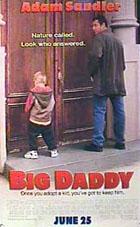|
Note: movie ratings are out of a
possible ***** as follows: July 1, 1999 The General's Daughter
John Travolta plays Paul Brenner, a warrant officer called into a southern-US army base to investigate the freak murder of Capt. Elisabeth Campbell (Leslie Stefanson). The investigation is complicated by the fact that Capt. Campbell is the daughter of General Joe Campbell (James Cromwell), who is about to retire from the Army and enter the vice-presidency race. The General seems to be grieving over the loss of his daughter at first, but it isn't long before we discover that he is more concerned with covering up his daughter's extracurricular sexual activities that threaten his upcoming political career. In his task to solve the murder quickly and quietly, Brenner is coincidentally partnered with Sarah Sunhill (Madeleine Stowe), an Army rape counselor and Brenner's former lover. Luckily for us, their relationship does not become a significant subplot to the murder, and if anything it makes these two characters seem real and capable of existing outside the stiffness of Army life. This murder investigation does not deviate far from the formula set by of other military murder films such as A Few Good Men and Courage Under Fire. The higher the rank of the officer, the deeper he is involved in the murder. There is the right way of doing things and then there is the Army way. And the "code of silence" among the officers always guards the key evidence to the murder. Perhaps the most predictable is the characterization of Capt. Elizabeth Campbell. On the outside she is an intelligent, highly respected officer whose beauty only seems to compliment her exemplary achievements in the Army. Yet, she falls victim to the unfortunate portrayal of most ranking female officers in mainstream cinema. That is, despite her impeccable exterior, she holds a dark and troubled soul that stems from the fact that her military father could not love her as much as he did the Army. The acting in The General's Daughter is strong and convincing. Travolta's military style in this movie is a definite improvement over his performance in The Thin Red Line, and it's refreshing to see Madeleine Stowe play something other than a seductive femme fatale. James Woods is excellent as a specialist in psychological warfare and his mind games with Brenner are sharp and entertaining. Solid acting aside, The General's Daughter is only a **1/2 movie that leaves the audience feeling slightly cheated of a good and suspenseful thrill. Big Daddy
Sonny's plans to win back his girlfriend fail miserably, but he decides to keep little Julian anyway. Despite the fact that Sonny's closest friends are all successful lawyers, they cheer on as Sonny illegally attempts to raise Julian to be exactly as he is. He lets Julian name himself Frankenstein, dress in any outfit he fancies, eat junk food until he vomits and allows him to play pranks that lead to injury and socially disturbing behavior. Consequently, Julian changes from a shy, endearing boy to a hyperactive child who seems only days away from child delinquency. Despite his despicable child-raising techniques, Sandler assures the audience that all will turn out all right in the end. He does this by introducing Layla (played by Chasing Amy's Joey Lauren Adams) as his new love interest. She is an intelligent, kind-hearted maternal figure who can't help but to save these two boys from fast becoming criminals. Until she does, however, Sandler continues to relentlessly tell hooter jokes, insult authority figures and praise crude behavior. Unfortunately, some gags are recycled too many times, and Sandler spends too much time slap sticking that the predictable ending is rushed and clumsy. Like Sandler's character in The Wedding Singer, Sonny is more or less a likable character. He is immature and silly, not mean-spirited. His jokes are childish and he makes sure he doesn't offend too outrageously. Perhaps the inclusion of fellow comedians like Steve Buscemi and Rob Schneider was to curtail our judgment and to remind us that they are only comedians poking fun at the absurd. To enjoy this movie, you have to put aside parenting rules and remind yourself that you're watching an ex-Saturday Night Live comedian strut his stuff in a **1/2 movie. Instinct If Doug Schneider could rename Jon Turteltaub's newest feature, he would have called it In-Stinks. Doug once told me that Anthony Hopkins decided to retire from acting, so when Hopkins landed the leading role in Instinct, Doug had no choice but to review it. It's quite obvious that when Turteltaub made Instinct, he couldn’t decide which movie to emulate. It can be Gorillas in the Mist, Silence of the Lambs, One Flew Over the Cuckoo's Nest or The Shawshank Redemption. Separately each of these films may have been blockbuster hits on their own merits, but when pieces of them are mixed into one movie (which is what Instinct sadly attempts to do), they whip up a considerable mess. Anthony Hopkins plays Ethan Powell, a renowned anthropologist. On a trip to Africa to study gorillas, he kills two men in the jungle. Their deaths send Powell into a dark inner world, and Powell consequently loses touch with the outside world to the point that he now refuses to even speak. In this dismal state, Powell ends up back in a US prison with criminally insane inmates, where he becomes a character who resembles a cross between Hannibal Lecter and Dian Fossey. Cuba Gooding Jr., still trying to replicate his Jerry Maguire success, tries hard as the determined psychiatrist, but the convoluted plot overshadows any type of drama or tension, and in the end it just ends up looking like excessive overacting. If you want real screams and shivers, skip this movie and settle down with the new Silence of the Lambs sequel Hannibal, available in book form only for now. Instead of re-creating a Lecter-like character in a *1/2 movie like Instinct, let's all hope we see Hopkins reprise the real thing when they make this novel into a movie later this year. The Red Violin Although in Canada, Francois Girard's The Red Violin has already been awarded the Best Motion Picture at the 1998 Genie Awards, it is considered a new release for our American neighbors, and we proudly recommend this Canadian-made film to our readers. The Red Violin is a poetic, impassioned drama with a multi-cultural flavor quite characteristic of Canadian filmmaking -- it contains dialog in five languages (English, French, Italian, German and Mandarin). Co-written by the young, up-and-coming filmmaker Don McKeller (Last Night), the story travels through four centuries and five countries to document both the richness and the tribulations in the lives of the people who are touched by a magical instrument known as the "red violin." The red violin is the creation of Nicolo Bussotti (Carlo Cecchi), a 17th-century fiddle maker in Italy. Inspired by the birth of his first child, Bussotti believes this violin to be his one masterpiece. However when his beloved wife dies in childbirth, the violin soon becomes a tribute to his wife. The aftermath of Bussotti and his newborn is not known, but the violin (which now embodies the love and suffering endured by this Italian couple) takes us to a new setting where love and loss is once again experienced through Kaspar Weiss (Christoph Koncz), an orphan boy in 18th-century Vienna. Knowing only his surroundings within the orphanage, Kaspar is alone in the world. It is the violin that literally breathes life into his soul and gives him the identity of a child prodigy who promises to be one of world's finest violinists. Yet, like the spirit of the violin which is borne out of death, Kaspar cannot survive the instrument, and we are again left relying on the violin to continue the story. Lord Frederick Pope (Jason Flemyng) is the next owner of the violin. As a concert violinist performing in England during the reign of King George III, he soon discovers that the power of his performance is far greater than any other human emotions he can endure. The violin survives Lord Frederick and travels to 20th-century China, where a liberal-minded activist, Xiang Pei (Sylvia Chang) risks her life to save the appreciation of western music within communist China. The fate of the red violin is finally left in the hands of Charles Morritz, an antique appraiser played by Samuel Jackson. Morritz is in present-day Montreal participating in an auction where the decedents of all the previous characters are biding for the red violin. When Morritz discovers both the value and the historical richness of this instrument, he is faced with the challenge of possessing this magical violin. The Red Violin smoothly moves from one story to another with the use of two transition techniques. There are the flash-forwards to the 1997 Montreal auction, where the bidders are anxiously awaiting the sale of the violin. The are also the flashbacks to a Tarot card reading that Bussotti's wife receives moments before her childbirth. These two techniques tie the five main stories together without confusion and allow time for viewers to fully absorb the end of each story. The Red Violin is beautifully put-together cinematically, and it deserves a ***1/2 rating. |
|
| Copyright
© 1999 SoundStage! All Rights Reserved |
![[SOUNDSTAGE!]](../../titles/sslogo3.gif) |

 The General's
Daughter may have been based on Nelson DeMille's bestseller, but translated on the big
screen it's nothing more than a cliché-ridden, mildly suspenseful murder drama. To call
it a murder mystery or thriller, you will not only have to make a conscious effort to
disregard a cast of stereotypical characters behaving exactly as you predicted, but you
will also need to endure a series of tangential stories that look and sound like obvious
decoys to the main plot.
The General's
Daughter may have been based on Nelson DeMille's bestseller, but translated on the big
screen it's nothing more than a cliché-ridden, mildly suspenseful murder drama. To call
it a murder mystery or thriller, you will not only have to make a conscious effort to
disregard a cast of stereotypical characters behaving exactly as you predicted, but you
will also need to endure a series of tangential stories that look and sound like obvious
decoys to the main plot.  I admit I laughed at Big
Daddy, and I also have to admit I was sort of embarrassed that I did. Dennis Dugan's
latest comedy stars Adam Sandler as Sonny Koufax, a self-acclaimed social misfit who opted
to be a tollbooth operator rather than taking the bar after law school. When his
girlfriend leaves him for a much older man who has a five-year plan, Sonny believes that
adopting a child will offer his girlfriend the stability she's craving. It so happens that
Sonny's lawyer roommate Kevin (Jon Stewart) has fathered a boy named Julian (played by
twins Coles and Dylan Sprouse) from a one-night stand five years ago. When the mystery
mother suddenly falls ill and sends her son to Kevin for permanent custody, Kevin is
working in China allowing Sonny to impersonate him for custody of the boy.
I admit I laughed at Big
Daddy, and I also have to admit I was sort of embarrassed that I did. Dennis Dugan's
latest comedy stars Adam Sandler as Sonny Koufax, a self-acclaimed social misfit who opted
to be a tollbooth operator rather than taking the bar after law school. When his
girlfriend leaves him for a much older man who has a five-year plan, Sonny believes that
adopting a child will offer his girlfriend the stability she's craving. It so happens that
Sonny's lawyer roommate Kevin (Jon Stewart) has fathered a boy named Julian (played by
twins Coles and Dylan Sprouse) from a one-night stand five years ago. When the mystery
mother suddenly falls ill and sends her son to Kevin for permanent custody, Kevin is
working in China allowing Sonny to impersonate him for custody of the boy.